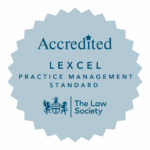Date Published: 5 June 2025
Author: Maria Endall
Norfolk is considered the “breadbasket” of the UK with its favourable climate and fertile soils and here farming is a major industry.
Family farms, however, are complex beasts when it comes to separating the matrimonial property and finances on divorce because of their size and multiple different parts; buildings which might be owned or occupied by different family members; the existence of family trusts; and the business of the farm itself which, depending on its structure, could also be owned by a number of different people.
There could be family members with legal or beneficial interests in the farm that compete with the interests of the claiming spouse in determining how to deal with the farm in the division of the matrimonial assets.
Farms, or parts of them, are typically handed down through the generations and therefore acquired through inheritance and as such possibly acquired long before the marriage or civil partnership was entered into.
There could, therefore, be questions about the extent to which the farm or parts of it are matrimonial or non-matrimonial.
The buildings, land, business and stock (livestock and deadstock) will all need to be professionally valued. Consideration must also be given to the tax implications of transferring or selling the business, farm or any part of it.
Being positioned in the heart of Norfolk, Hatch Brenner is regularly consulted by farmers or the spouse or civil partner of the farmer in the context of a separation or divorce.
We work closely with accountants, valuers and our own trust experts to help you to untangle the complexities of the family farm in order to achieve a fair settlement in your divorce.







